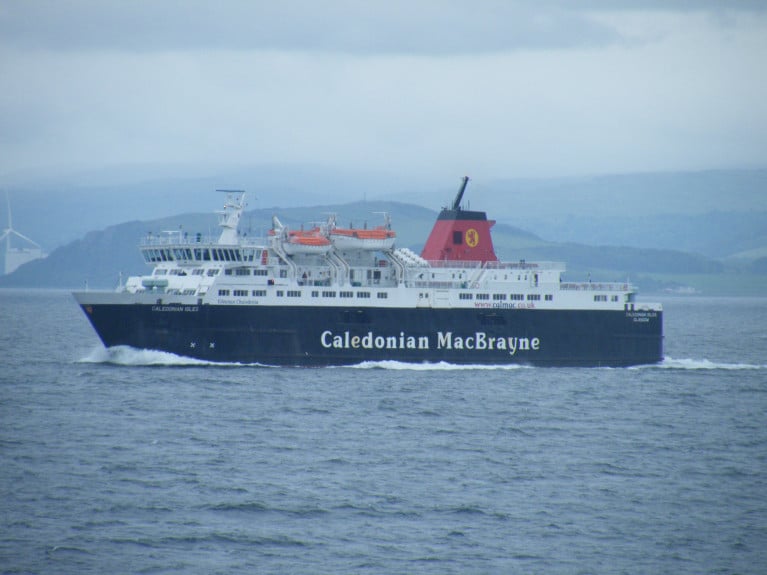Displaying items by tag: Arran route
Operator CalMac Sees Firth of Clyde Ferry Sidelined as £5m Repairs for Over Seven Months Is Due to 'Rust'
CalMac which is a Scottish Government-owned ferry operator, has been landed with a £5m repair bill as one of its oldest ferries built in 1993 has been side-lined until at least July due to rust.
The west coast ferry operator, which has the biggest domestic fleet in the UK, has warned of disruption across the Clyde and Hebrides network as a result of steelwork issues with the 31-year-old MV Caledonian Isles. The 5,531 gross tonnes ferry which serves on Firth of Clyde route of Ardrossan-Arran is one of the busiest of the network and is due to be replaced, in the meantime the route is operated by the even older Isle of Arran built in 1984.
The route's main ferry Caledonian Isles has been out of action since going for an overhaul at the start of January as Afloat previously identified to the Clyde dry-dock of Dales Marine Services in Greenock. (The ferry was subsequently tracked this month to Merseyside, at Cammell Laird, Birkenhead where the works continue).
In response to the situation, The Isle of Arran Ferry Committee said it was pushing for contingency plans over the latest problem to hit CalMac's ageing fleet.
Commenting on the development concerning MV Caledonian Isles, The Scottish Government's Transport Scotland agency said it "is deeply regrettable" and expected CalMac to come forward with details of the changes to timetables as soon as possible, to allow ferry users to plan ahead and keep disruption to a minimum.
The ferry was sidelined for over three months with further steelwork and engine difficulties this time last year with repair work then estimated at £1m. It had been due to leave the yard after an overhaul before issues with the engines, steelwork and bearings were noted by engineers.
For more on the steelworks, TheHeraldScotland has the story.
On the Firth of Clyde, the main ferry crossing to the Isle of Arran (Afloat can confirm has returned) to service on Friday after repairs were completed early.
As STV News reported, the MV Caledonian Isles developed a fault in its port engine and hit a harbour wall on Sunday, April 17.
The stricken ferry was expected to resume on May 3, but operator Caledonian MacBrayne (CalMac) has announced that the service will return on Friday.
A smaller ferry, MV Isle of Arran, operated the Caledonian Isles’ timetable while the vessel was out of action.
In a statement on its website, CalMac said: “We would very much like to thank our customers for your patience, your response to the situation and for the support shown.
“A disruption of this nature is challenging for you and the communities we serve – this fact is always at the forefront of our minds throughout the period.”





























































